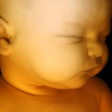
KUALA LUMPUR (Reuters Life!), Jun 20 - Doctors warned parents in Asia on Friday not to take hand, foot, and mouth disease (HFMD) lightly as it is increasingly associated with complications like encephalitis, which can be fatal.
HFMD affects mainly children younger than 10 years old. In the past, it was mostly caused by the coxsackievirus A16 and complications were rare.
But another little-known agent, enterovirus 71 (EV71), has crept onto the scene over the past 10 years in Asia, experts told an infectious disease conference in Kuala Lumpur.
"The ecology has changed and this has become a very important pathogen (infectious agent) in this part of the world, especially for HFMD, and people have to realize that," said Mong H Ooi, an expert on the disease at Universiti Malaysia Sarawak.
"Children may have a few days of skin rash, yet they can collapse suddenly of cardiorespiratory failure. The disease can progress very fast. We have seen patients die at home and in GP clinics. It's very traumatic for parents and doctors."
Ooi and his colleagues have been monitoring outbreaks of HFMD in Sarawak, Malaysia, since 2000.
Sarawak suffered three outbreaks of HFMD involving a total of about 1,400 patients in 2000, 2003, and 2006. EV71 was the predominant cause in all three outbreaks, of which about 20% resulted in complications involving inflammation of the brain, Ooi said.
"Brain stem encephalitis with cardiorespiratory failure is the complication that causes most panic among parents," said Ooi.
HFMD swept through several provinces in China this year and has resulted in at least 42 deaths so far.
There are no vaccines or drugs for HFMD, which is believed to be passed among children through the fecal-oral and oral-oral routes. Apart from encephalitis, EV71 can also cause paralysis and meningitis. However, little is known of EV71.
"It is very important for us to find the reservoir of EV71. Is it in the water? We need to find out," said another speaker at the conference, Andrew Kiyu of the Sarawak Health Department.
Ooi said the only way to prevent complications was to be alert to certain signs, like high fever of long duration and lethargy in young victims.
"If the fever lasts more than three days, then the possibility of (complications) is very high. Coxsackievirus rarely causes fever. And even when it does, the fever is hardly ever more than 38.5 (Celsius)," Ooi said.
By Tan Ee Lyn
Last Updated: 2008-06-20 14:23:26 -0400 (Reuters Health)
Copyright © 2008 Reuters Limited. All rights reserved. Republication or redistribution of Reuters content, including by framing or similar means, is expressly prohibited without the prior written consent of Reuters. Reuters shall not be liable for any errors or delays in the content, or for any actions taken in reliance thereon. Reuters and the Reuters sphere logo are registered trademarks and trademarks of the Reuters group of companies around the world.


















